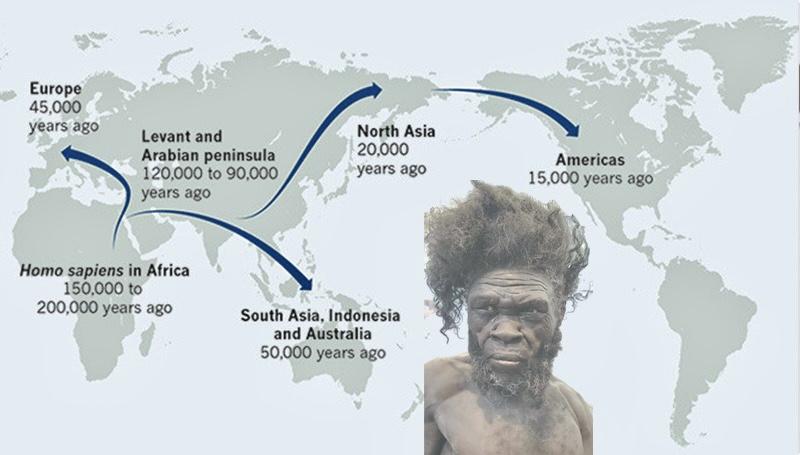The term “migration” refers to “movement from one country, place, or locality to another.” Humans have been on the move ever since the first humans began to spread from Africa. Even today, at least 258 million people live outside of their country of origin, accounting for 3% of the world’s population. Migration, whether voluntary or forced, has significantly shaped our world.
First migrants
Ancient humans who originated on the African continent were the first migrants. Their spread to Eurasia and elsewhere is still a source of considerable scientific debate. The earliest recognizable Homo sapiens fossils were discovered in Ethiopia around 200,000 years ago.
According to the “out of Africa” theory, Homo sapiens dispersed across Eurasia around 60,000 years ago, where they met and eventually replaced other human ancestors such as Neanderthals.
Nevertheless, evidence of migrations from Africa to Eurasia 120,000 years ago has cast doubt on that theory. Early humans are thought to have migrated to Asia either through a strait that connects the Horn of Africa and what is now Yemen, or through the Sinai Peninsula.
Early humans are thought to have spread from Southeast Asia to Australia, which shared a landmass with New Guinea at the time, then to Europe, and finally to the Americas.
Climate change, food scarcity, and other environmental variables were most likely driving the migrations. War and colonization began to fuel migrations as tribes became less nomadic.
A laundry list of colonies helped the ancient Greeks expand their reign. Rome’s residents were moved as far north as the United Kingdom. Imperial China, like the rest of the world, utilized its force to expand its frontiers and settle refugees in far-flung borderlands.
The new research found that modern humans split from Neanderthals around 300-400,000 years ago, rather than the 500-600,000 years previously thought.
According to the findings, modern humans left Africa between 55 and 60,000 years ago, rather than 70 to 80,000 years ago as previously thought.
They also discovered more recent dates for other significant events, such as the age of our African ancestral mother, mitochondrial Eve, from whom all recent humans (Homo sapiens) descended. She lived between 110 and 130,000 years ago, rather than 150,000 and 200,000 years ago as previously thought.
Source:
- https://www.nationalgeographic.com/culture/article/migration
- Source: American Museum of Natural History (news: web)
 The African History Truly African
The African History Truly African

